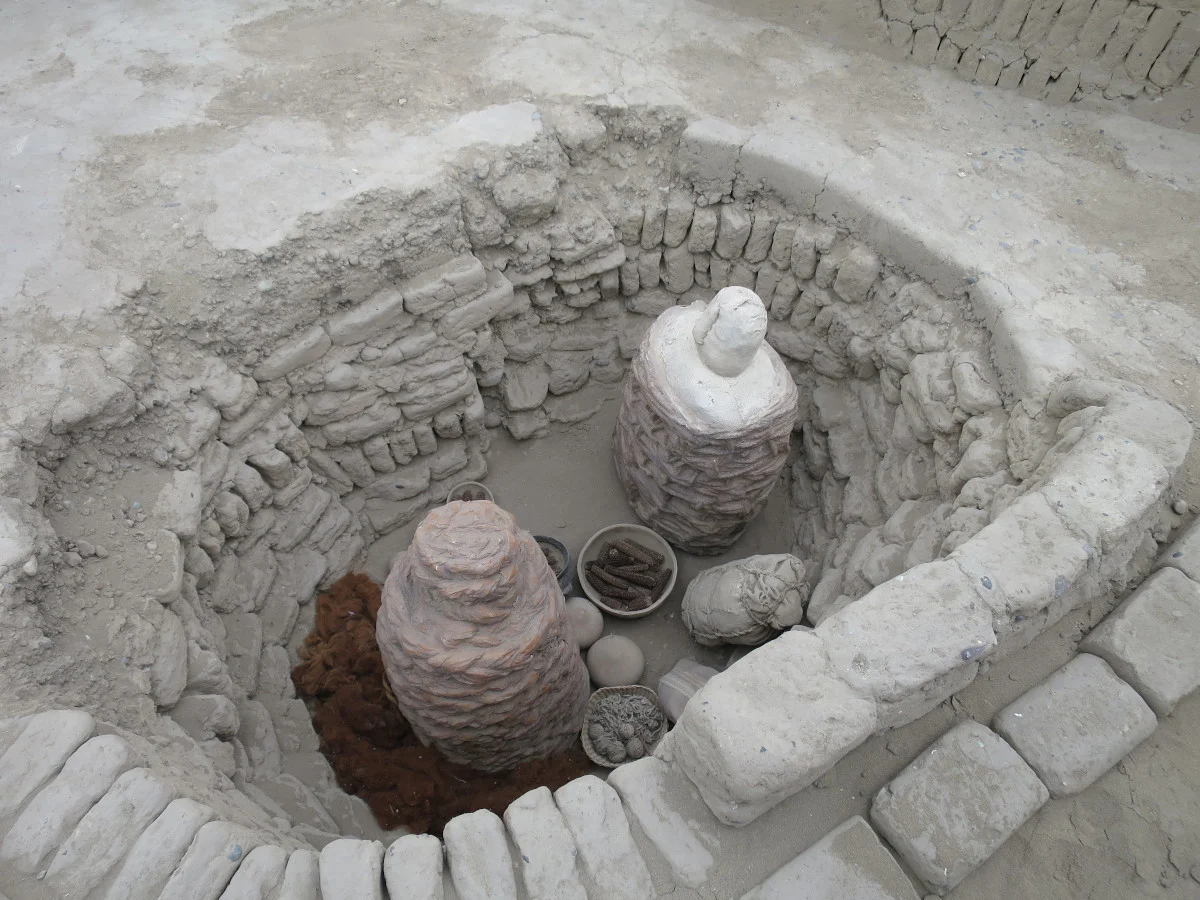Archaeologists in Peru have unearthed a 1,000-year-old mummy at the Huaca Pucllana archaeological site, located within the upscale Miraflores neighborhood. This find sheds light on a lesser-known ancient civilization, the Ychsma culture, which thrived on the central coast of modern Peru before the rise of the Inca Empire.
 A ceremonial dig in Huaca Pucllana site, Peru, where a 1,000-year-old mummy was unearthed. Credit: Sharonkuei, via Wikimedia Commons
A ceremonial dig in Huaca Pucllana site, Peru, where a 1,000-year-old mummy was unearthed. Credit: Sharonkuei, via Wikimedia Commons
The mummy, discovered in a sitting position with bent legs, boasts well-preserved features, including long hair and an almost entirely intact jaw. Alongside the mummy, archaeologists found ceramic vessels and textiles.
The Huaca Pucllana site, in the heart of the city, challenges the conventional perception of archaeological sites occurring in remote locations. With numerous urban developments overlaying ancient sites, it raises questions about what other hidden treasures might lie beneath modern cities.
Mirella Ganoza, the lead archaeologist at the site, emphasized the significance of the discovery, stating, “I find it quite interesting that right in the heart of Miraflores, in the middle of the city, surrounded by modern buildings and constructions, an important site is still preserved, the Huaca Pucllana ceremonial center.”
 Huaca Pucllana is located in urban Lima. Credit: Splasho, via Wikimedia Commons
Huaca Pucllana is located in urban Lima. Credit: Splasho, via Wikimedia Commons
The Ychsma culture, which thrived on the central coast of modern Peru during a period of social reorganization, is credited with constructing at least 16 pyramids in the region. This culture played a crucial role in shaping Peru’s ancient history.
This discovery emphasizes the anthropological significance of Peru beyond its famed Incan heritage, raising the possibility of more hidden archaeological gems beneath our urban landscapes.
Lima is home to approximately 400 sacred sites with archaeological ruins, offering experts the opportunity to delve into the country’s past and study the conditions and culture of Indigenous Peruvians through mummies found in the region.
The discovery also challenges preconceived notions of archaeology occurring only in remote locations, showcasing the potential for significant finds in the midst of bustling modern cities.





